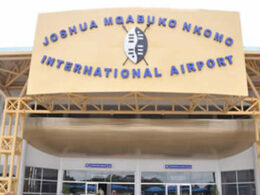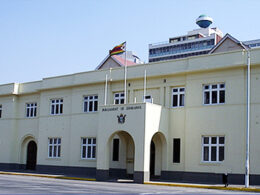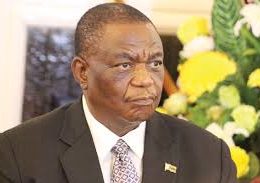Neighbouring South Africa on November 24 reported to the World Health Organisation (WHO) that it had detected the latest Covid-19 variant, B.1.1.529 (Omicron).
What is known so far about the Omicron Variant?
· Scientists are still working to understand its potential implications.
· Early evidence suggests Omicron, with about 32 mutations, has a higher re-infection risk.
· Many cases have now been identified in Europe – two in the UK, two in Germany, one in Belgium and another one in Italy, while a suspected case was found in the Czech Republic.
· Omicron cases have also been detected in Botswana, Hong Kong and Israel.
How does the Omicron compare with other Covid-19 variants?
· Senior scientists have described B.1.1.529 (Omicron) as the worst variant they had seen since the start of the pandemic.
· The variant has 32 mutations in the spike protein, the part of the virus that most vaccines use to prime the immune system against Covid -19. That is about double the number associated with the Delta variant.
· Mutations in the spike protein can affect the virus’s ability to infect cells and spread, but also make it harder for immune cells to attack the pathogen.
· The Delta variant was first detected in India in late 2020 but has spread around the world, causing an increase in case rates and deaths.
· Other coronavirus variants include Alpha (which originated in Kent in the UK), Beta (formerly known as the South African variant) and Gamma (originally found in Brazil). It has been suggested, after a drop in cases in Japan, that variants can “mutate themselves out of existence”.
World response to Omicron detection
· The United Kingdom (UK) has since banned travellers from South Africa, Namibia, Zimbabwe, Botswana, Angola, Mozambique, Malawi, Zambia, Lesotho and Eswatini from entering that country unless they are UK or Irish nationals, or UK residents.
· US officials have said foreigners would be blocked from travelling from South Africa, Botswana, Zimbabwe, Namibia, Lesotho, Eswatini, Mozambique and Malawi with effect from Monday (today).
· On Saturday Australia announced that flights from South Africa, Namibia, Zimbabwe, Botswana, Lesotho, Eswatini, the Seychelles, Malawi, and Mozambique would be suspended for 14 days. Non-Australians who have been in those countries in the past two weeks are now banned from entering Australia
· Japan on Saturday as well also announced that travellers from much of southern Africa will need to quarantine for 10 days and take a total of four tests during that time
· India on the other hand has also ordered more rigorous screening and testing for travellers arriving from South Africa, Botswana and Hong Kong
· Canada is also barring all foreign nationals who have travelled through South Africa, Namibia, Zimbabwe, Botswana, Lesotho, Eswatini or Mozambique in the last 14 days









